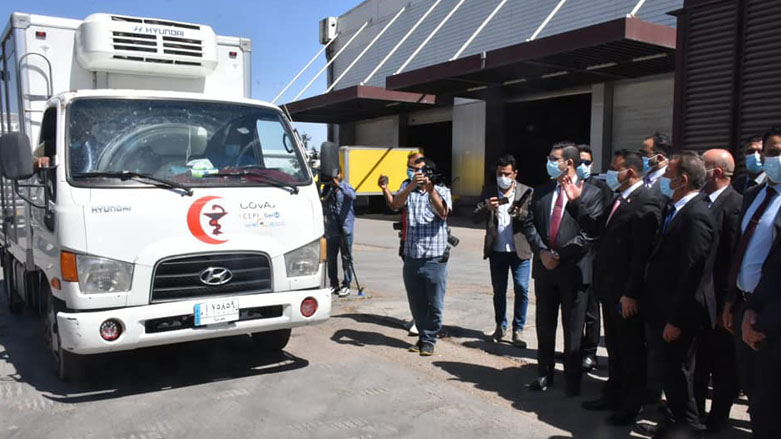Iraq to receive more COVID-19 vaccines from US supply

ERBIL (Kurdistan 24) – The government of Iraq will receive a portion of the remaining 55 million COVID-19 vaccines the United States has allocated to be shared globally, the White House said Monday.
US President Joe Biden has pledged to share 80 million doses from the American stockpile by the end of June. Twenty-five million doses have already been allocated, and the administration said Monday that 25 percent of the remaining 55 million, or around 14 million doses, would soon be shared "with regional priorities and other recipients," including Iraq.
The White House did not say what portion of the 14 million doses would go to Iraq or specify a timeline for delivery, saying, “we will move as expeditiously as possible, while abiding by US and host country regulatory and legal requirements, to facilitate the safe and secure transport of vaccines across international borders.” The Kurdistan Region typically receives 10-15 percent of the jabs delivered to Iraq.
Iraq was among the countries sharing approximately 6 million vaccine doses from the first tranche, which the US administration said had begun shipping. Seventy-five percent of the 80 million doses will be allocated to the UN’s Covax scheme to provide vaccines to low- and middle-income countries, of which Iraq is a beneficiary.
The 80 million doses are separate from the 1 billion Pfizer-BioNTech coronavirus jabs that the US, UK, and other top economic powers pledged at this month’s G-7 meeting.
Iraq has so far fully vaccinated only about 0.7 percent of its population, or 257,000 people, according to the UK-based Global Change Data Lab’s Our World in Data project. Iraqis have been reluctant to take up the jab amid misinformation and rumors about side effects, among other factors.
In the autonomous Kurdistan Region, an initially slow rollout was spurred by the arrival of the Pfizer vaccine in early April. The region’s health ministry said last week that more than 200,000 people had received their first dose of the Pfizer, Oxford-AstraZeneca, or Sinopharm vaccines, the three available. Healthcare workers began administering second doses in mid-May.
Iraq and its Kurdish region have planned to vaccinate “20 to 30 percent” of the population by the end of 2021, according to Dr. Dashti Bustani, a member of Iraq’s anti-COVID-19 Board.
